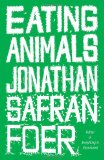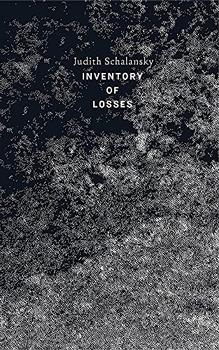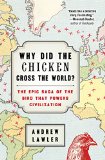Summary | Excerpt | Reading Guide | Reviews | Beyond the book | Read-Alikes | Genres & Themes | Author Bio

Brilliantly synthesizing philosophy, literature, science, memoir and his own detective work, Eating Animals explores the many fictions we use to justify our eating habits - from folklore to pop culture to family traditions and national myth - and how such tales can lull us into a brutal forgetting.
Jonathan Safran Foer spent much of his teenage and college years oscillating between omnivore and vegetarian. But on the brink of fatherhood - facing the prospect of having to make dietary choices on a child's behalf - his casual questioning took on an urgency. His quest for answers ultimately required him to visit factory farms in the middle of the night, dissect the emotional ingredients of meals from his childhood, and probe some of his most primal instincts about right and wrong. Brilliantly synthesizing philosophy, literature, science, memoir and his own detective work, Eating Animals explores the many fictions we use to justify our eating habits - from folklore to pop culture to family traditions and national myth - and how such tales can lull us into a brutal forgetting. Marked by Foer's profound moral ferocity and unvarying generosity, as well as the vibrant style and creativity that made his previous books, Everything is Illuminated and Extremely Loud and Incredibly Close, widely loved, Eating Animals is a celebration and a reckoning, a story about the stories we've told-and the stories we now need to tell.
This is a book that everyone should read, vegetarian or not. It is didactic without being dull, it presents its arguments without preaching, it manages to be both approachable in style and appealing to educated readers, and it offers up new arguments in addition to some familiar ones... Perhaps Foer's vision is idealistic, but it is hopeful. And one of the loveliest qualities of Eating Animals is its hopefulness, not just for animals but for human beings as well...continued
Full Review
 (818 words)
(818 words)
(Reviewed by Cindy Anderson).
Foer suggests that meat lovers who don't want to support factory farms consider patronizing small family farms rather than buying grocery store meat, which has been produced by factory farms. The products offered by these small farmers tend to be pricey, but these producers say that their animals live most of their lives outdoors, pain-free, with access to high quality food and water. Foer, who is a vegetarian, doesn't consider them perfect (and he says that some practices, like castrating pigs, are still unacceptable to him), but he finds them to be admirable alternatives for those who choose to eat meat.
Profiled in Eating Animals, Frank Reese's Good
Shepherd Poultry Ranch (Kansas) features free-range poultry and American
...

If you liked Eating Animals, try these:

by Judith Schalansky
Published 2021
Each disparate object described in this book - a Caspar David Friedrich painting, a species of tiger, a villa in Rome, a Greek love poem, an island in the Pacific - shares a common fate: it no longer exists, except as the dead end of a paper trail.

Why Did the Chicken Cross the World?
by Andrew Lawler
Published 2016
From ancient empires to modern economics, veteran journalist Andrew Lawler delivers a sweeping history of the animal that has been most crucial to the spread of civilization across the globe - the chicken.